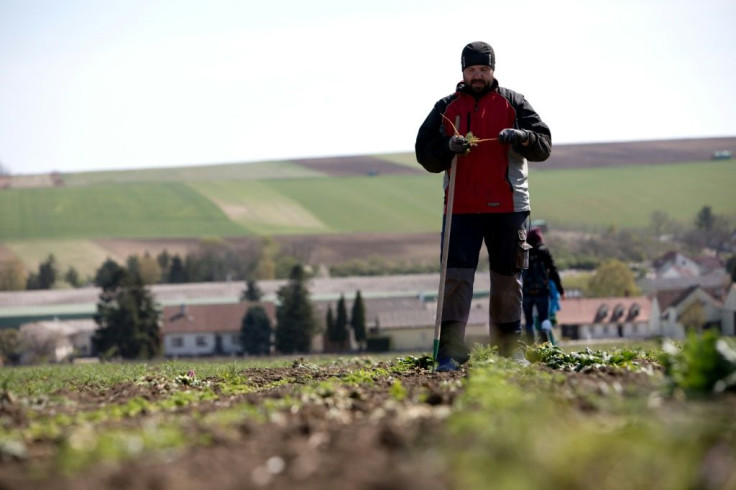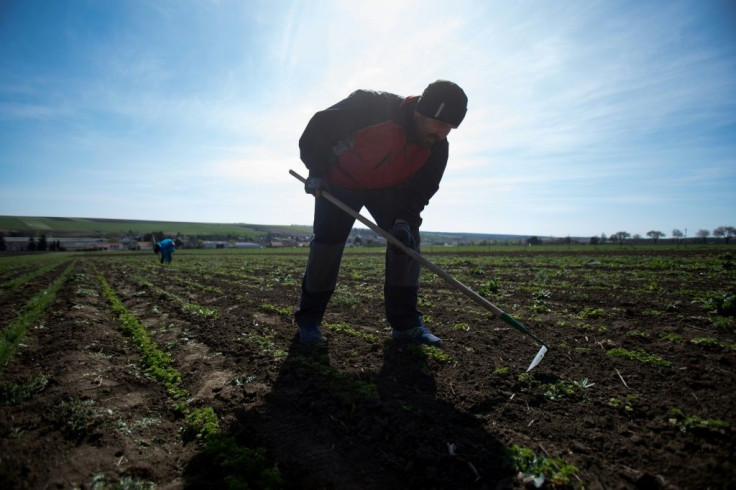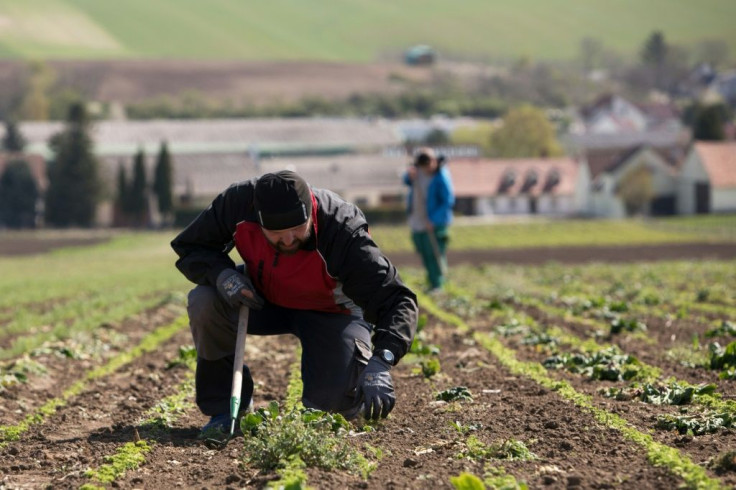Austrians Discover Farm Work In Coronavirus Labour Crunch

As in many Western countries, one of the shocks of the coronavirus crisis in Austria was how vulnerable farms were when suddenly deprived of foreign labour -- but the country is having some success in getting Austrians to plug the gap.
The Schreiber family farm in the village of Steinebrunn in Lower Austria is a stone's throw from the Czech border and normally relies on the free flow of workers across it.
When that border closed as the novel coronavirus spread through Europe, "we were helpless," owner Gabriela Schreiber said.
"We can't make it alone without help," she said, adding that they feared losing this year's harvest.
But while some Austrian farms are flying in workers from eastern Europe -- a pattern being repeated in several parts of the continent -- smaller farms in particular are turning to a scheme set up by the agriculture ministry that matches people who are out of work with newly vacant jobs on the land.
Some 20,000 people are looking for employment through the portal, called dielebensmittelhelfer.at ("the food helpers").
Of these, around 2,000 -- mostly with prior experience and willing to work full-time -- are in the process of being matched to vacancies.
Around 450 mainly small and medium-sized farms looking for some 4,000 workers have signed up so far.
According to Austria's Farmers' Association, the sector is "characterised by its small structure", which has been helpful in facing the crisis.
The country seems to also have had more success in attracting younger generations to farming: according to the European Commission, Austria has the highest proportion of farmers under 40 in the EU, at 22 percent.

Schreiber said that the agriculture ministry's scheme had run relatively smoothly for her.
After signing up, she was contacted within days to meet two applicants now busy on the farm planting vegetables, flowers and herbs and getting to grips with the weeds.
One of them is food wholesale buyer Jan Simka, who has had more time on his hands since hours were cut back at his job.
"I wanted to use this time sensibly and help our farmers," the 43-year-old told AFP, admitting the work was in some ways harder and more monotonous than expected.

He and student Kerstin Krueckl, 23, start at 8 am and work through until evening -- staying distanced all the while.
Krueckl is from a farming family and her studies in agronomics are currently on hold.
Seeing the reality of farm work outside the lecture hall has been an eye-opener.
"The work seems very hard on the first day," she admitted, but added: "You learn to cope with the pain."
Both said they wanted to do their bit to ensure Austria's food supply chain keeps running.
While some farmers hope the platform will continue matching up workers with vacancies even after the crisis, others such as strawberry farm owner Alexandra Ramhofer in the Burgenland region say they expect many Austrians will find the work too hard.
It is up to the farms and the workers to negotiate their wages, but minimum monthly salaries for harvest workers are set at less than 1,500 euros ($1,600) before taxes.
Austria's average household net-adjusted disposable income per capita is around 2,500 euros, according to OECD data.
Ramhofer is looking for up to 10 workers to replace those who usually come from Croatia and Poland for the harvest from mid-May through June.
While she does not expect a lasting rise in the number of Austrians who want to work the land, she hoped that people might come to appreciate farm work better.
"What people realise is that we need farmers, so more and more people are buying from farmers directly," Ramhofer told AFP.
As for Schreiber, she also thinks the scheme is unlikely to survive post-crisis and is eager for her experienced Czech workers, who have become "like family", to return.
The Alpine nation, with its close to nine million people, has been spared the brunt of the health crisis so far, with some 15,000 reported infections and more than 500 deaths.
Krueckl for her part plans to stop work with the Schreibers in the summer to re-focus on her studies, while Simka also says he will return to his full-time job once the hours are ramped up again, which could happen next month.
"But I will take away from here that whatever I sell is not produced so easily," he said.
© Copyright AFP {{Year}}. All rights reserved.





















